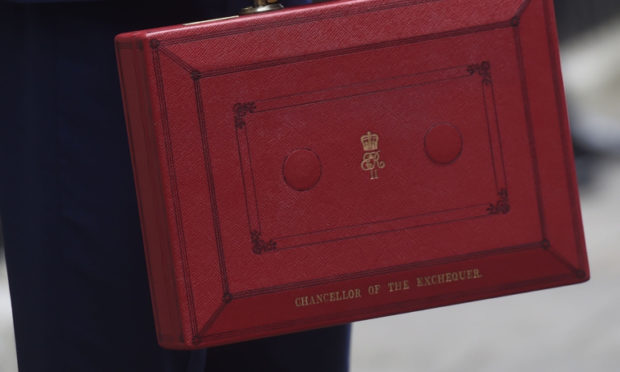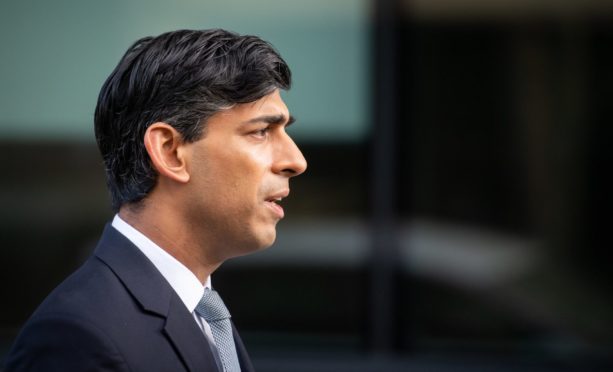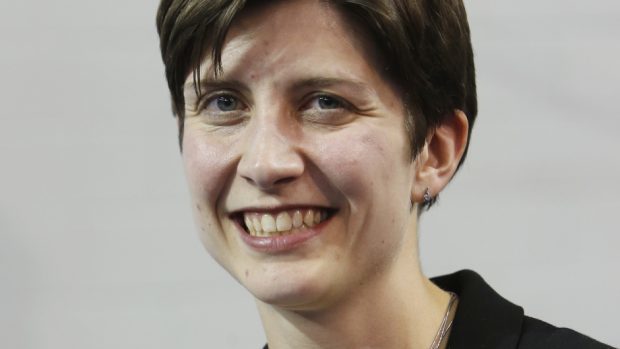Rishi Sunak will seek to inoculate Britain’s ailing economy against the long-term effects of Covid on Wednesday, with major investments in infrastructure, job support and public services.
The Chancellor is hoping his multibillion-pound stimulus will steady the nation, as the true cost of the pandemic begins to bite next year.
At his spending review, Mr Sunak is set to announce more than £4 billion for new job support schemes, tens of billions of pounds for infrastructure projects, more than £16 billion for the military, in addition to cash for the NHS and schools.
But, with official figures indicating the economy will only begin recovering to its 2019 peak in late 2022, Mr Sunak is also expected to warn people to expect hardship.
The Chancellor is poised to cancel plans for a 5.6% rise in the national living wage for two million low-paid workers.
The move means many low-paid workers, including those who have been on the front lines during the pandemic, such as staff in care homes, will not see any pay rise in real terms.
Mr Sunak is also expected to announce a public sector pay freeze for workers in England, owing to concerns that it would not be fair to increase wages at a time when those in the private sector are losing their jobs or having their wages cut.

Despite the cuts, the Treasury are at pains to emphasise “jobs and livelihoods” remain at the centre of this spending review, which follows nine months of unprecedented support for businesses and individuals through the furlough, self-employment and bounce back loan schemes.
At its peak the furlough and self-employment schemes were supporting more than 930,000 jobs in Scotland and more than 79,000 businesses benefited from almost £3 billion of UK Government-backed loans.
‘Priority is to protect jobs and livelihoods’
Mr Sunak, speaking ahead of the spending review, said: “My number one priority is to protect jobs and livelihoods across the UK.
“This spending review will ensure hundreds of thousands of jobs are supported and protected in the acute phase of this crisis and beyond with a multi-billion package of investment to ensure that no one is left without hope or opportunity”.
CBI policy director Matthew Fell said the Chancellor was right to focus on job creation as the economy looks to recover in 2021.
“Covid-19 has swept away many job opportunities, for young people in particular,” he said.
“The scarring effects of long-term unemployment are all too real, so the sooner more people can get back into work, the better.”
Pay freeze a ‘mistake’
The SNP warned, however, that it was a “mistake” to freeze pay and have called on the Treasury to be bolder and invest £98 billion to stimulate the economy.
The party’s shadow chancellor, Alison Thewliss, said: “This spending review comes at a critical time as the UK navigates through a devastating pandemic, faces a severe Tory unemployment crisis, and the looming threat of an extreme Brexit in a matter of weeks.
“The SNP has been clear that to deal with these challenges, the Chancellor must introduce a fiscal stimulus of at least £98bn and the devolution of financial powers, a package of meaningful measures to put money in people’s pockets, and a major cash injection for the NHS and social care across the four UK nations.”
‘A return to austerity’
Ms Thewliss hit out at a number of proposals that are rumoured to be in the review, including plans to cut the foreign aid budget and spend £30 million on a festival to celebrate post-Brexit Britain.
She added: “Instead of pursuing meaningful measures to support the economy and public services, the Tory government is instead looking to pursue all the wrong priorities with a return to austerity.
“The reported plans to impose a pay freeze on millions of hard-working public sector workers, changing the law to cut its aid budget towards helping the world’s poorest and most vulnerable, and the staggering reports that they will waste almost £30m celebrating Brexit – something Scotland overwhelmingly opposed – are extremely concerning.”

